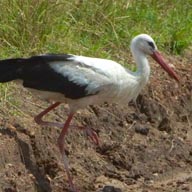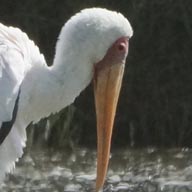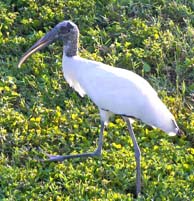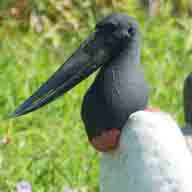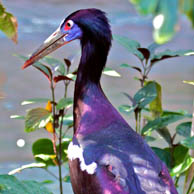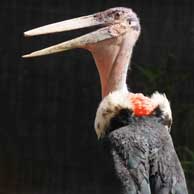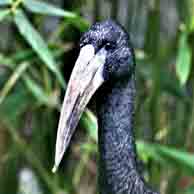Storks are large, long-legged, long-necked wading birds with long, stout bills. They belong to the family Ciconiidae. They are the only family in the biological order Ciconiiformes, which was once much larger and held a number of families. Storks occur in many regions of the world and tend to live in drier habitats than the related herons, spoonbills and ibises. They also lack the powder down that those groups use to clean off fish slime. Storks have no syrinx and are mute, giving no call; bill-clattering is an important mode of stork communication at the nest. Many species are migratory. Most storks eat frogs, fish, insects, earthworms, small birds and small mammals. There are 19 living species of storks in six genera.
Genus Mycteria
Milky Stork, Mycteria cinerea
Yellow-billed Stork, Mycteria ibis
Painted Stork, Mycteria leucocephala
Wood Stork, Mycteria americana
Genus Anastomus
Asian Openbill Stork, Anastomus oscitans
African Openbill Stork, Anastomus lamelligerus
Genus Ciconia
Abdim's Stork, Ciconia abdimii
Woolly-necked Stork, Ciconia episcopus
Storm's Stork, Ciconia stormi
Maguari Stork, Ciconia maguari
Oriental Stork, Ciconia boyciana
White Stork, Ciconia ciconia
Black Stork, Ciconia nigra
Genus Ephippiorhynchus
Black-necked Stork, Ephippiorhynchus asiaticus
Saddle-billed Stork, Ephippiorhynchus senegalensis
Genus Jabiru
Jabiru, Jabiru mycteria
Genus Leptoptilos
Lesser Adjutant, Leptoptilos javanicus
Greater Adjutant, Leptoptilos dubius
Marabou Stork, Leptoptilos crumeniferus
